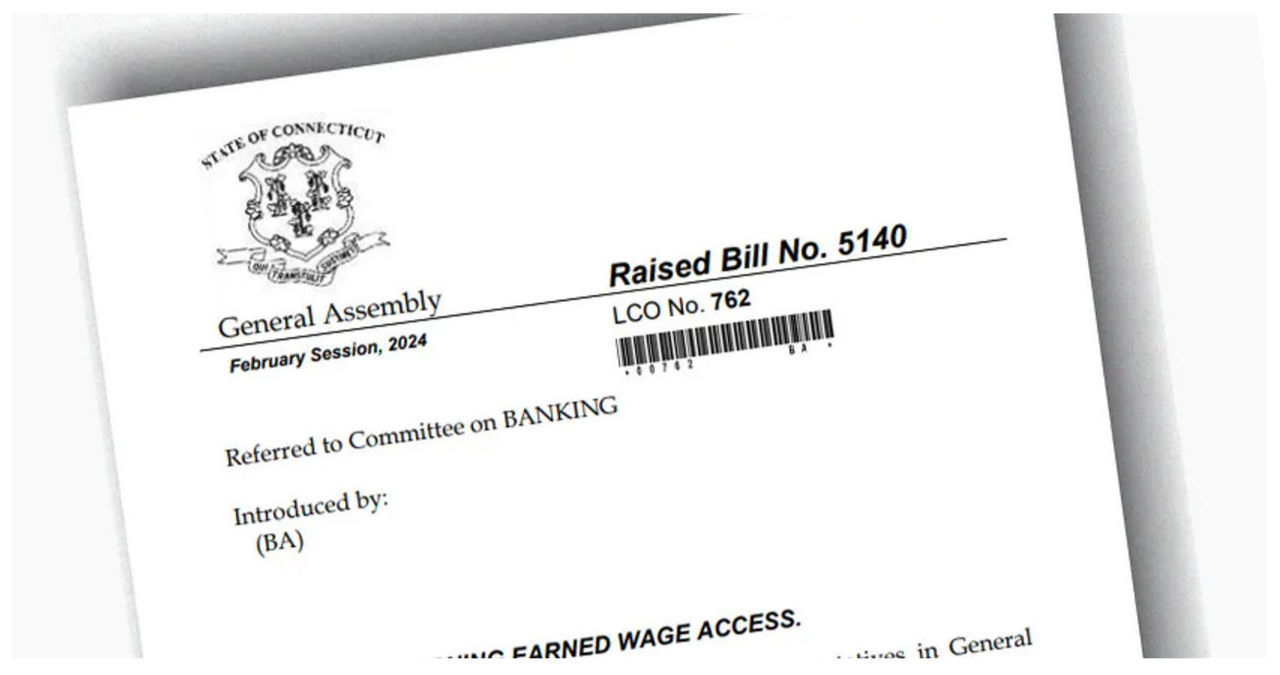The Connecticut Banking Department’s actions have left me feeling devastated. It is disheartening to see that they have failed to prioritize the safety of citizens’ financial well-being. The introduction of HB 5140, which focuses on earned wage access (EWA), falls short of adequately addressing the issue at hand. It is crucial that this legislation is amended and fixed to provide better solutions for the people.
For years, I relied on EWA to access the wages I had earned before my next paycheck. This service provided me with the means to support my family of six, allowing me to cover important expenses such as rent, car payments, insurance, and utility bills. It was a lifeline that helped me manage unexpected costs as well.
Managing my finances can be challenging, especially when my expenses don’t align evenly with my biweekly pay periods. Despite having a decent salary, it’s difficult to spend the same amount of money during both halves of my pay cycle.
Last year, I experienced a tire blowout while driving on the freeway. Unfortunately, I didn’t have any extra funds to cover the cost of a tow truck, as I had already allocated my paycheck to other expenses. Consequently, I found myself stranded on the side of the road. However, thanks to EWA, I was able to withdraw a portion of my earned income to call for a tow truck and safely remove my car from Interstate 84.
At the start of the year, the Department of Banking implemented state regulations that have unfortunately limited access to EWA. The app I relied on for this service is no longer available, which poses a significant challenge for me.
This month, I found myself in a situation where I had to use my rent savings to cover the cost of an oil change. Consequently, I now face the challenge of not having enough money to pay my light bill unless I can quickly borrow $50 from a friend within the next few days.
In January, I had the opportunity to speak at a policy forum organized by the state legislature’s Black & Puerto Rican Caucus. During the event, they encouraged constituents to express their concerns on matters that were important to us. Additionally, I had the privilege of testifying before the legislature’s Banking Committee on this very issue. In both instances, I highlighted the detrimental impact that the state’s new regulations on EWA (Earned Wage Access) were having on my financial stability.
After more than a month of neglect, EWA has finally caught the attention of the state legislature. They have introduced a bill, HB5140, which categorizes the service as a loan. As a result, access to EWA will now be restricted unless it is provided by the employer.
My employer does not collaborate with any EWA provider to grant me access to my earned wages. I fail to comprehend why my employer should possess the authority to regulate my financial independence. This service ought to be accessible to all employees, irrespective of their employer’s choice to permit it.
I had the opportunity to testify at a Banking Committee hearing on the proposed legislation. During the hearing, several ‘consumer advocacy’ groups spoke out against EWA, alleging that the service was designed to deceive customers into paying excessive and undisclosed fees. However, I am not easily deceived.
During my investigation of consumer advocacy groups, namely the Center for Responsible Lending (CRL) and AARP, I discovered that both organizations receive funding from the very institutions that impose high fees and provide costly loans.
As someone who has personally experienced the impact of the new rules and proposed legislation, I strongly urge the legislators responsible for voting on this bill to prioritize the voices of the countless families who have been adversely affected. It is crucial that they listen to our stories and take into account our financial well-being when creating responsible regulations, rather than solely relying on the opinions of lawyers and so-called ‘consumer advocates.’
The current version of the proposed legislation restricts the financial options available to workers, leaving us with limited choices. It is crucial that this bill is revised or completely abandoned. Since the implementation of these new rules, I have been left feeling helpless, as there are no affordable alternatives at my disposal. I urge the Banking Committee and the entire General Assembly to take immediate action by amending and rectifying HB 5140 in order to address the pressing need for this consumer product.
Tominica Beach resides in the beautiful town of Shelton.



